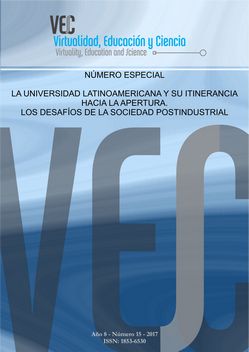MOOC: the diversification of its design in the framework of its mass and free access as disruptive elements
DOI:
https://doi.org/10.60020/1853-6530.v8.n15.18955Keywords:
democratization, right of access, distance education, health, tutoringAbstract
The present paper describes and analyzes an academic practice that started in 2013 at the National Institute of Epidemiology “Dr. Juan H. Jara” (INE), which constituted an innovative experience. The goal is to provide a broad panel of continuous education, from initial to specialised courses, including introductory, basic, intermediate, and advanced Epidemiology training. The “Introductory Course on Epidemiological Analysis of Daily Practice” was developed in collaboration by the Epidemiology Direction of the National Ministry of Health and the Pan American Health Organization (PAHO). It was inserted in the dynamics training characteristic of the INE, combining their missions of training, research and knowledge diffusion with an underway attempt of open course. This study comprises the following components: description and analysis (from the informative, practical, and tutorial/evaluative dimensions), and a proposal for the Course improvement taking into account new sceneries.Downloads
Published
2017-12-23
Issue
Section
Theoretical Basis and Research
License
The generation of derivative works is allowed as long as it is not done for commercial purposes. The original work may not be used for commercial purposes.
How to Cite
MOOC: the diversification of its design in the framework of its mass and free access as disruptive elements. (2017). Virtuality, Education and Science, 8(15), 21-36. https://doi.org/10.60020/1853-6530.v8.n15.18955


